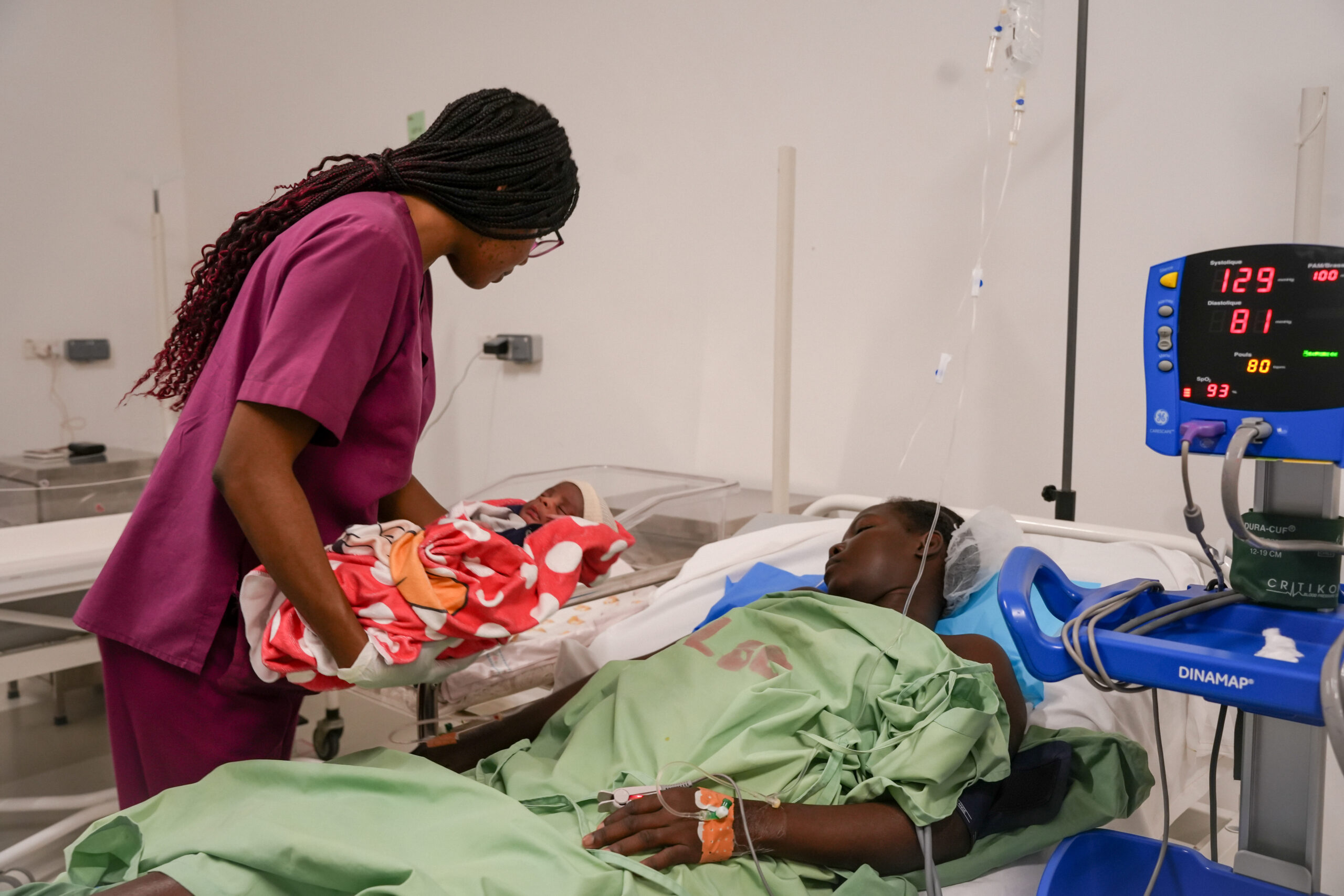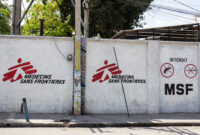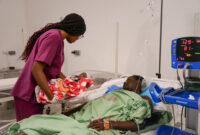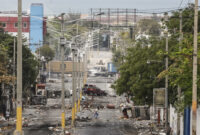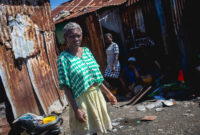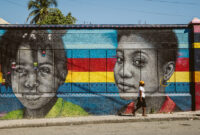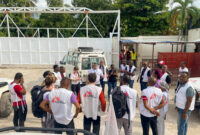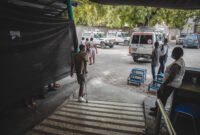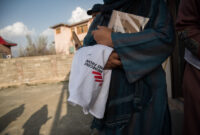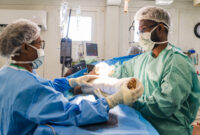Haiti: “When it rains, it’s impossible to reach the hospital”
Pregnant women in the south of Haiti face challenges in accessing healthcare
The challenges for pregnant women in remote areas
At the first light of dawn, Douillette, a village nestled in the commune of Chardonnières, in southwestern Haiti, begins to wake up. Market stalls are slowly set up and children rush to their schools in this part of the country’s South department.
Manita, 39, seven months pregnant, crosses this lively village to reach the Rendel health centre, where she attends prenatal consultations. The facility is supported by Doctors Without Borders/Médecins Sans Frontières (MSF). She will arrive there two hours later, at 9 a.m. The return journey is even more exhausting: she must climb the mountains, a task made more difficult by her pregnancy. “It takes me much longer to get home because I can’t walk quickly,” she says.
The 2021 earthquake affected the country’s south, damaging many health facilities. “There is no health centre in Douillette. The nearest one is in Rendel, then in Port-à-Piment, several hours of walking or half an hour by motorcycle. Chardonnières is even further away. Apart from that, there are no other healthcare facilities in the vicinity,” says Manita.
“Due to the lack of functional health facilities, some women travel long distances to give birth in Port-à-Piment, sometimes from Les Cayes, despite the presence of a hospital. In Haiti, especially in rural areas, home births remain common.”
Mackencia Beaubrun, MSF midwifery team supervisor
The maternal health situation in Haiti remains concerning, as indicated by the data from the 2023 statistical report from the Ministry of Public Health and Population (MSPP). In 2023, the maternal mortality rate reached 201 deaths per 100,000 live births, an increase from 155 deaths per 100,000 in 2022. The South department is particularly affected, with an alarming rate of 344 deaths per 100,000 live births, one of the highest in the country.
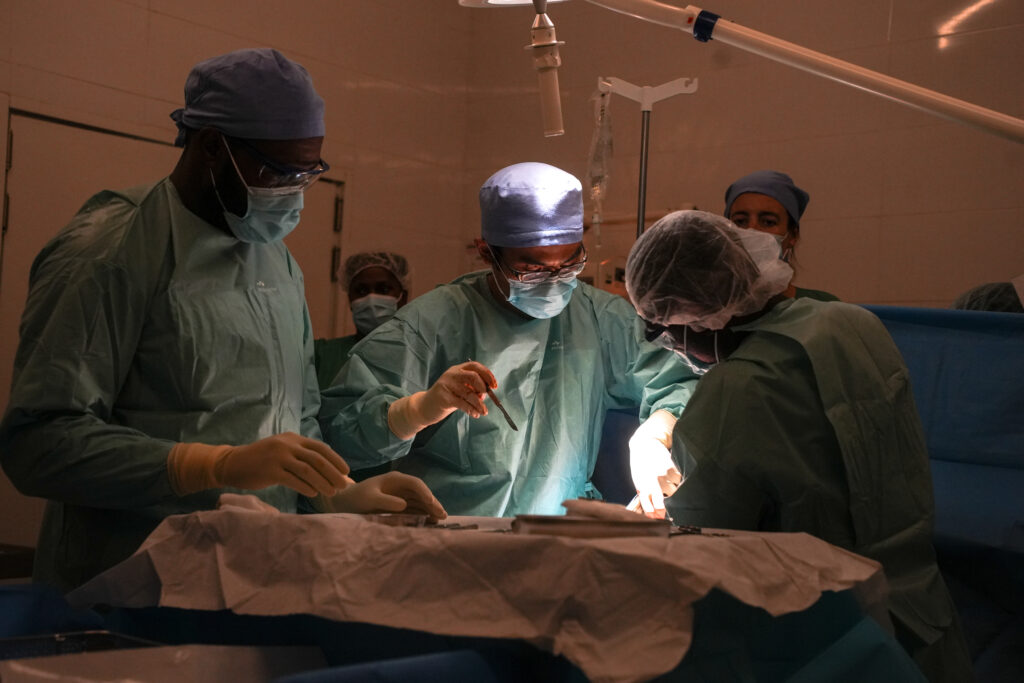
Raising awareness about prenatal consultations
The Port-à-Piment maternity ward, rebuilt and expanded by MSF after the 2021 earthquake in collaboration with the MSPP, is one of the few facilities in the region offering comprehensive care: safe deliveries, emergency obstetric interventions, neonatal care and even an intensive care unit, the only one in the entire department. MSF performs about 120 deliveries per month here, including around 20 complicated cases. In 2024, nearly 450 newborns were cared for at the facility.
“Due to the lack of functional health facilities, some women travel long distances to give birth in Port-à-Piment, sometimes from Les Cayes, despite the presence of a hospital. In Haiti, especially in rural areas, home births remain common,” says Mackencia Beaubrun, MSF’s midwifery team supervisor.
To reduce pregnancy-related risks, MSF’s health promotion teams organize daily community awareness sessions in surrounding villages about the importance of prenatal consultations. They also explain how giving birth in health centres means medical staff support the wellbeing of pregnant women and babies if complications arise during delivery.
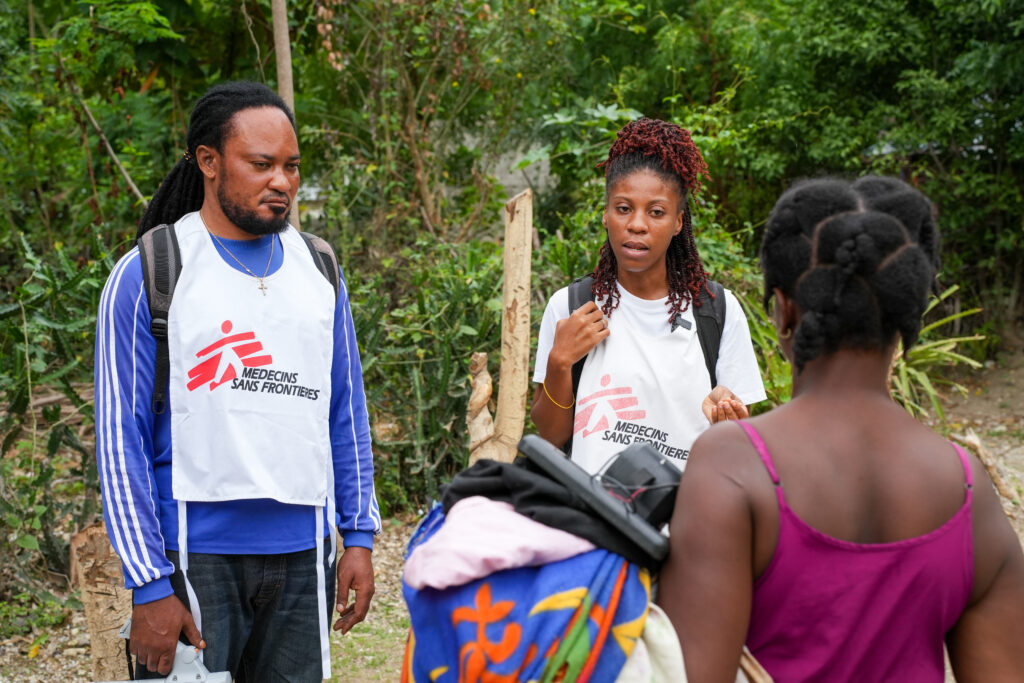
Yvane, from Grand Chemin, gave birth alone to her first six children. After awareness sessions with MSF, she chose to give birth to her seventh child in the hospital. “Discussions with MSF convinced me to avoid the risks, because by chance, my previous deliveries had gone without complications,” she says. Without transportation, her neighbours and son helped her walk for an hour to the maternity ward. “Despite the pain, I didn’t want to give birth at home.” Today, she feels relieved. “I received a lot of care and feel much more reassured,” she says.
“When it rains a lot, even if your child is sick, you can’t take them to the hospital because it’s impossible to cross the rivers.”
Manita, a patient at the MSF-supported Rendel health centre
In addition to the Port-à-Piment maternity ward, MSF supports three health centres in South department, in Rendel, Tiburon and Chardonnières, to strengthen people’s access to care in the most isolated areas. Two MSF ambulances are also available to ensure the referral of complicated deliveries from health centres or the community to the Port-à-Piment maternity ward.
Facing obstacles to access healthcare
As the rainy season approaches, access to healthcare will deteriorate further. For women like Manita and Yvane, the obstacles are daunting: when rivers flood and isolate villages, reaching healthcare facilities becomes impossible. “When it rains a lot, even if your child is sick, you can’t take them to the hospital because it’s impossible to cross the rivers,” says Manita.
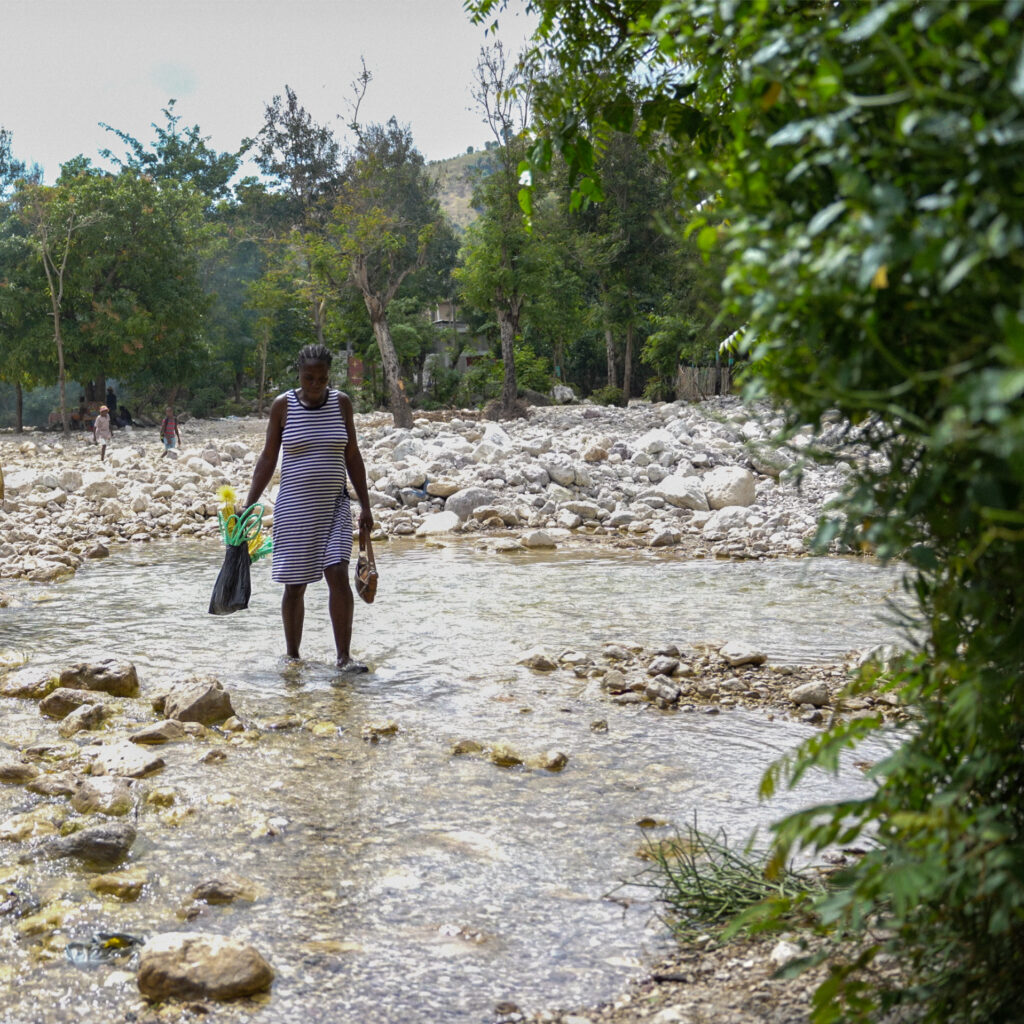
Manita and Yvane have no choice but to risk their lives and their children’s by navigating a challenging route to access prenatal and postnatal consultations and even to give birth. “If we had more functional health centres, pregnant women could give birth safely, and children and adults who fall ill would receive care on time,” says Manita.
Although South department is relatively safe from the insecurity affecting Port-au-Prince, it suffers heavily from the consequences of the ongoing crisis in Haiti. The growing grip of armed groups on key access roads isolates the region from the capital and severely disrupts the supply of medicines, blood and other essential resources to health facilities.
At the same time, the exodus of Haitian healthcare workers abroad has worsened the shortage of medical staff in remote areas. The suspension of U.S. funding, which covered 59 per cent of Haiti’s humanitarian plan in 2024, is worsening the shortage of humanitarian actors. This funding suspension is weakening access to healthcare and could lead to an alarming rise in maternal mortality.
